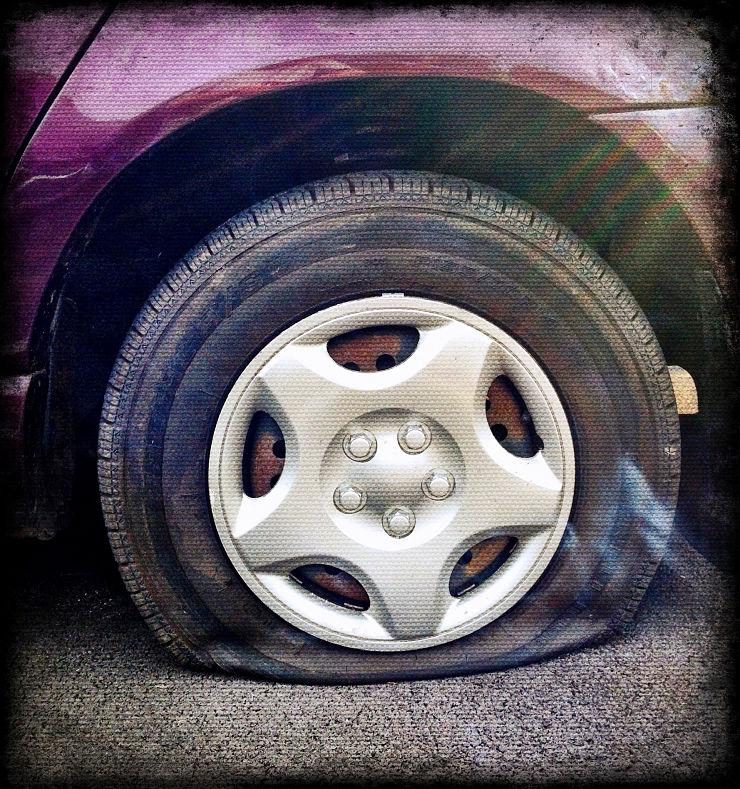When your wallet’s as flat as this tire and you can’t make your Chapter 13 plan payments, what do you do?
Chapter 13 promised a chance to reorganize, keep what’s important, and get out of a financial hole.
But it just isn’t working. What now?
In good lawyer style, I’ve got to tell you: it depends.
It depends on why you’re in Chapter 13; what’s happened that you can’t make the Chapter 13 plan payment; and what your goals are/were for your bankruptcy case.
Is the money problem going to last?
First question: is the problem with your cash flow temporary or longer term? When the problem is an unexpected expense or a short interruption in income, your case may be easily salvageable.
CARES Act legislation allows confirmed Chapter 13 plans to extend their duration to 7 years, instead of five.
Some trustees allow an informal suspension of payments, or a plan to catch up on the court approved payment plan.
Others may require a formal plan modification, that confirms a payment schedule different than the one originally proposed.
Asset or income driven?
The degree of flexibility you have to adjust your plan payments depends in part on how the amount you’re paying to unsecured creditors was calculated.
To be confirmed, a plan has to provide unsecured creditors the larger of
- what they would get if you had filed Chapter 7 instead of 13,
OR
- your monthly disposable income calculated under the means test
If your plan is income driven, and your income goes down, it’s relatively easy to modify your plan.
On the other hand, if your plan is driven by the value of your non exempt assets, to get a Chapter 13 discharge, creditors need to get the total distribution originally calculated. So, modification can restructure the payments, but the sum of those payments remains unchanged.
Goals of your Chapter 13
Over-optimism causes lots of plan breakdowns.
Often, those in bankruptcy start out determined to save the house from foreclosure, or to keep the timeshare, or the pricey car. Reality, or later changes, may say that it simply isn’t possible.
Your goals may have to change if the income available simply doesn’t stretch that far.
Chapter 13 plan fixes
You’ve got four basic alternatives if you can’t catch up quickly and informally.
Modify your plan – figure out which goals are feasible and how much income is available. Propose a plan that’s consistent.
Convert to Chapter 7 – consider whether under the present facts, you’d be better off in Chapter 7.
Dismiss your case – dismissal is always available in Chapter 13. That’s why I like 13 so much. Dismissal could be a chance to start a new case, with new timelines and new values.
Hardship discharge – under certain circumstances, you can get the benefits of the Chapter 13 discharge without completing the payment plan.
So, the good news is that there are choices. Get help from your bankruptcy lawyer evaluating which works best for you.
More
Image courtesy of Michael Sclaldone under a Creative Commons license.






